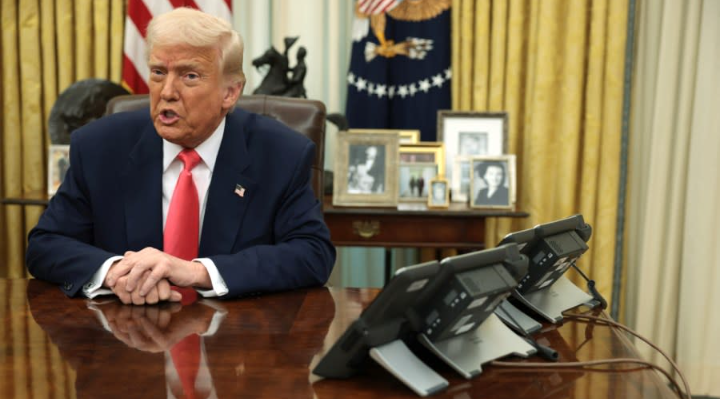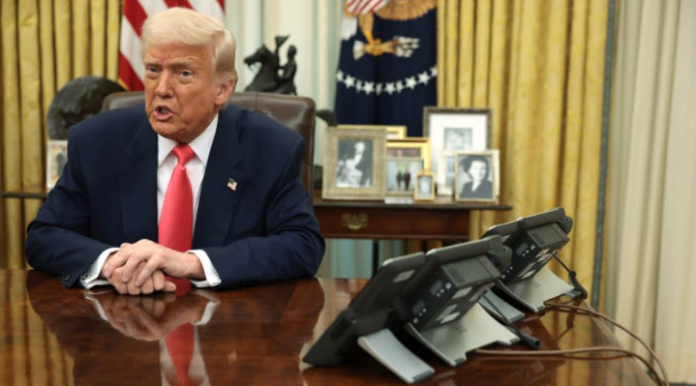In a major political move, President Donald Trump has revoked the security clearances of several high-profile figures, including former presidential candidate Hillary Clinton, ex-Vice President Kamala Harris, and former Rep. Liz Cheney. This decision, announced late Friday, also impacts several other political and legal figures who have been vocal critics of Trump.
Trump’s Justification: “Not in the National Interest”
In a memo released by the White House, Trump stated that he had determined it was no longer in the “national interest” for these individuals to retain access to classified information. As a result, he directed all federal agencies to take immediate action to revoke their security clearances and prevent them from accessing classified materials.
“I hereby direct every executive department and agency head to take all additional action as necessary and consistent with existing law to revoke any active security clearances held by the aforementioned individuals and to immediately rescind their access to classified information,” Trump wrote in the memo.
Additionally, the order prevents these individuals from entering secure government facilities without escort, further limiting their influence on national security matters.
A Growing List of Revoked Clearances
This latest directive follows previous actions taken by the Trump administration to remove security access from other political figures. Among those already affected are:
- Former Secretary of State Antony Blinken
- National Security Advisor Jake Sullivan
- Deputy Attorney General Lisa Monaco
- Attorneys Mark Zaid, Norm Eisen, and Andrew Weissmann
- New York Attorney General Letitia James
- Manhattan District Attorney Alvin Bragg
On Friday, Trump added Rep. Adam Kinzinger (R-Ill.) to the list. Both Kinzinger and Cheney played key roles in the congressional investigation into the January 6, 2021, attack on the U.S. Capitol, making them frequent targets of Trump’s criticism.
Rolling Back Security Privileges for Political Opponents
Since returning to office in January, Trump has aggressively moved to limit the access of his political opponents to classified information. In early February, he revoked President Joe Biden’s security clearance, arguing that Biden had no need for it.
He also terminated security protections for his former national security advisor John Bolton and former Secretary of State Mike Pompeo. Both men have been at risk of assassination threats from Iran, but Trump justified the move by stating that he did not respect certain individuals who he believed had “come very close” to breaking the law.
Implications and Political Backlash

The decision to revoke security clearances from so many former officials is unprecedented and is expected to spark significant political debate. Critics argue that Trump is using national security policies to punish his opponents, while his supporters claim it is a necessary step to prevent classified information from being misused.
One of the most controversial aspects of Trump’s memo is a directive that prevents these individuals from regaining security clearance through private-sector employment. If any of them attempt to gain access through private contracts, the government is required to inform their employers that their clearance has been revoked.
With the 2025 political landscape already heated, this latest move is sure to intensify the battle lines between Trump and his critics. Whether this decision will hold up against legal challenges remains to be seen, but it has undoubtedly reshaped the conversation around security access and political power in the United States.



